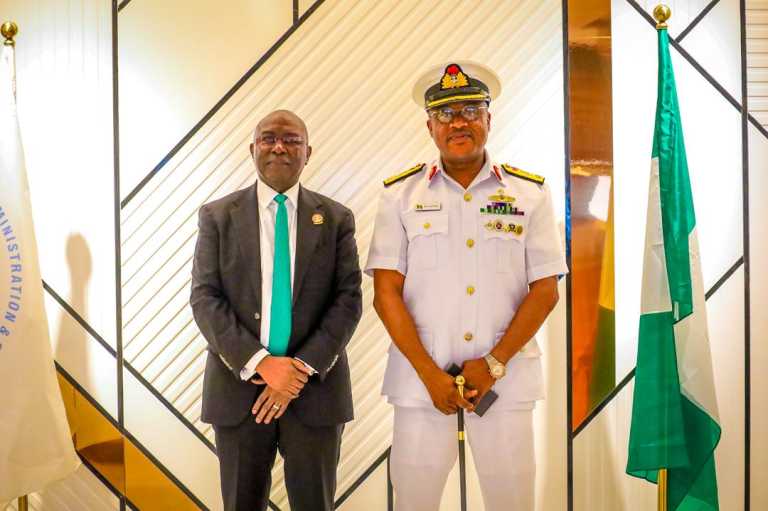A Brighter Future: LIFE’s 3-Year Journey in Empowering Girls and Vulnerable Females in Nigeria
By Prince Benson Davies
The Leadership Initiative for Youth Empowerment (LIFE), a non-profit organization, is proud to share its 3-year review of projects aimed at combating gender-based violence (GBV), female genital mutilation (FGM), and maternal morbidity in Nigeria. With a mission to empower girls and other vulnerable females, LIFE’s efforts have yielded considerably successful outcomes.
In the past three years, LIFE has made significant strides in addressing GBV, FGM, and maternal morbidity in Nigeria, particularly in the rural and urban areas of Lagos State. The organization has empowered numerous young girls and vulnerable females through sensitization and community outreach programs, paving the way for a brighter future.
Addressing journalists in Lagos, Toyin Mokwe, LIFE’s Project Officer, emphasized that the organization’s core mission is to amplify the voices of females by empowering girls and vulnerable women through initiatives focused on gender-based violence, human rights, leadership development, and economic empowerment.
These strategies, she says, are delivered through advocacy, sensitization, innovative awareness, and research.
In reviewing the 3-year project, Toyin noted that LIFE has worked on issues around female genital mutilation (FGM), gender-based violence (GBV), and reducing the maternal mobility rate caused by unsafe abortion. She also stated that due to the limited information and lack of knowledge in the society on knowing one’s right to justice, especially in the remote communities, LIFE created sensitization programs that revolved around understanding the concept of GBV and its binding laws.
A case in point of societal approach to this problem of GBV, Toyin gave an account of an issue arising from a woman badly beaten by her husband and how the law enforcement agency maligned her reports; the society also alienated her until LIFE advocates stepped into the situation to seek justice, a typical example of inadequate information on ‘Know your rights for justice’ and ‘Do not die in silence.’
In an ongoing evaluation of the maternal morbidity sensitization project, Toyin said research shows that Nigeria has one of the highest rates of unsafe abortions in the world, with unwanted pregnancies as the root cause. She says a doctor once mentioned that over 200 cases of organ damage due to unsafe abortion are recorded yearly. Moreover, during specific sensitization programs for youths on unsafe abortion, an attendee once attested to being in collaboration with her other female colleagues at the JSS level to provide a pregnant friend with concoctions to terminate a pregnancy, which ended badly as the victim ended up losing her womb.
Also addressing the issue of maternal morbidity resulting from unsafe abortions, the managing director of LIFE, Abiodun Rufus-Unegbu, affirms the organization has been able to reach a large audience on issues arising from unsafe abortions leading to maternal morbidity by sensitization programs, thereby giving comprehensive analysis on sexuality education. The sensitization, she says, also encourages that parents should be friends with their children to enable healthy discussions on sex and should shun religious and sentimental ways of treating a sexually active child but instead teach them to stay faithful to a partner and prevent self by using medically recommended preventive measures to avoid unwanted pregnancies leading to unsafe abortions.
Abiodun said the teenagers need to be educated on the menstrual cycle and how sexual activities can lead to unwanted pregnancies. Peer pressure, she says, can be a big factor in shaping a child’s mentality; hence, the needed guidance of the parents through open discussions. There is a need to strike a balance between being too hard or soft with the children; if the parents do not educate their teenagers, the internet will, and what the internet teaches might not align with their family values. The youths and teenagers make irrational decisions; hence, the need for continuous sensitization to make informed decisions.
During her assessment of gender-base violence
Abiodun Rufus-Unegbu revealed that LIFE has led sensitization to the grassroots over the years with testimonies of improved outcomes in GBV cases. She said the organization is presently working with several support groups at the grassroots level and has advanced to creating measures to support the mental well-being of survivors of GBV during and after crisis. The crisis care coordinator, Laura Moore, she says, is in charge of the psychosocial support for vulnerable survivors to help them cope mentally while awaiting justice.
Abiodun emphasized that LIFE has established strong connections with communities in Isolo, Ejigbo, and Oshodi, allowing them to effectively address issues like gender-based violence, female mutilation, and maternal morbidity.
The justice system in Nigeria is favorable to a few people; hence, LIFE’s initiative to breach the gap by helping vulnerable survivors get justice. While a survivor awaits justice, psychosocial support is provided through the crisis management team of LIFE, solely dedicated to enabling survivors to share their issues to ease their minds; a room with calming facilities has been established to that effect.
Laura Moore, Crisis Care Coordinator, highlighted the importance of LIFE’s 3-year sensitization projects on GBV and maternal morbidity, emphasizing that psychosocial support is crucial for survivors’ mental recovery from traumatic experiences. She also noted the success of LIFE’s cooling-off room, a safe space for vulnerable women, and expressed her willingness to provide support to survivors from across Nigeria.
 The New Experience Newspapers Online News Indepth, Analysis and More
The New Experience Newspapers Online News Indepth, Analysis and More
